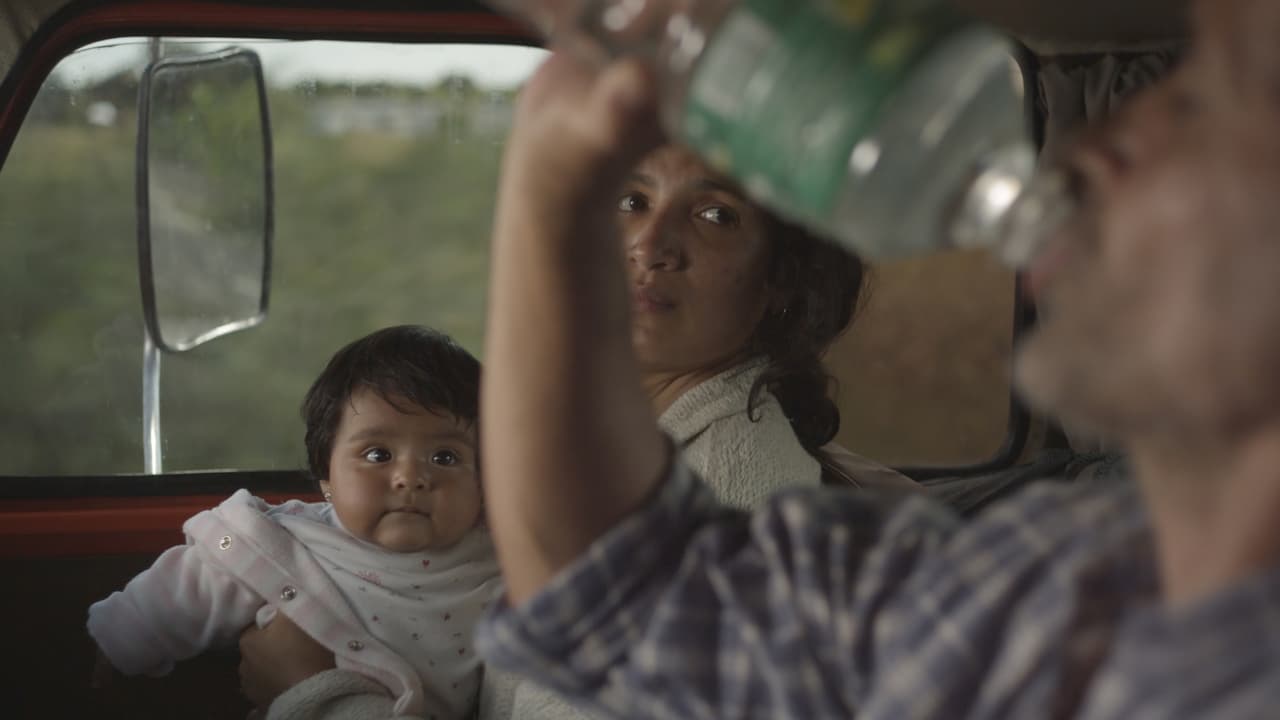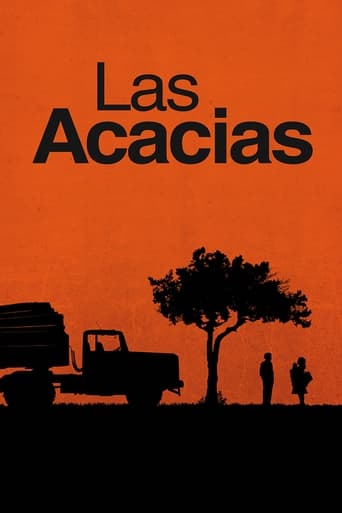

The film was still a fun one that will make you laugh and have you leaving the theater feeling like you just stole something valuable and got away with it.
... View MoreClever and entertaining enough to recommend even to members of the 1%
... View MoreExactly the movie you think it is, but not the movie you want it to be.
... View MoreIt's simply great fun, a winsome film and an occasionally over-the-top luxury fantasy that never flags.
... View MoreI watched this film last night and I thought it is going to be boring. It wasn't the case in the end, because I felt like I was part of the journey, I was in the car and I couldn't hardly wait to get to Buenos Aires, and once there, I felt like I know my trip mates better. :) The baby was more than amazing! She's like a little star! I think when she'll grow up and see her performance she'll have all the reason to be proud for herself :) An achievement :)It may seem like the whole film is event-less but I was positively surprised to see that the outcome was better then expected. I can easily imagine this to happen for real... Like I said I only recommend this film only if you're not infected with the holywoodian kind of "film".
... View MoreA visual narrative on ordinary folk with a simple but instantly recognisable theme - loneliness. Argentina of late has produced some magical road films featuring the lives of everyday characters - and they are all a joy to watch. It matters not that the dialogue, what little there is of it, is in Spanish. It could be a silent film or dubbed in Arabic. The film speaks for itself. It is so well crafted. A roughneck lorry driver who has travelled the highways of Argentina for 30 years and used to his own space, is ordered by his boss to take one of his journeys south to Buenos Aries with a passenger - a young mother and child. Gradually, as the journey progresses and he becomes more and more frustrated with the noise and demands of the child, but a bond slowly comes through. This is a very touching film and very well made. The open road is shown not as dramatic backdrop in panorama - but as a close-up with each of the characters in the shot. There are a number of comments made by reviewers here that liken the film to watching paint dry etc. I think these people went to the cinema expecting another Die Hard, Steven Seagal, Van Damme, Terminator shoot em up Hollywood rubbish. Suggest that in future they read the poster before venturing further.Cinema isn't just there to entertain (or make money) it is also to educate and generate thought. Well recommended piece of social realism.
... View MoreRuben, a truck driver, begins a journey in Paraguay that will change his life. He has agreed to pick up a friend of his boss and brings her to Buenos Aires. Little does he know the woman will show up with a five month baby. Ruben is taking a truck full of logs in a trip that will take him into the heart of Argentina toward the capital of the country.Ruben is at first skeptical of what he is going to do. He must go through the border customs, figuring the woman is going to Argentina to stay illegally, so he will only be compounding on the problem. Yet, albeit reluctantly, he decides to take her along. Jacinta, the passenger, tells the customs agent the baby has no father. She, like many of her poor fellow Paraguayans end up working as lowly pad maids in Argenine's households.The trip does not start auspiciously. Ruben, who appears to be a solitary man, does not take well the crying of the baby, but to his credit, he does not complain. Figuring he made a promise, now he has to fulfill it. As the two ride in almost total silence, Jacinta, is a soothing presence in his otherwise solitary ride, something he must endures in his long distance travels. The baby, Anahi, is a cute addition. We get to know a bit of Ruben's past. He confesses of having a son whom he met when the boy was four, and have not seen him in eight years. By the end of the trip Jacinta has cast a spell on Ruben. He did not think he was going to be affected the way he did.Pablo Giorgelli, the director of "Las Acacias" is a minimalist. There is almost no dialogues during the trip, and yet, a whole story comes out effortlessly. To his credit, the film has a rhythm of its own, keeping the viewer with the three occupants of the cab of truck. The director and Salvador Rosell created a plausible screenplay that has a good feeling because of the interaction, albeit subtle between Ruben and Jacinta. In spite of some negative comments to this forum, one never felt bored by the almost static setting and action in the film. Mr. Giorgelli creates an atmosphere of tolerance on Ruben's part and ultimately of acceptance and even tenderness at the end of the trip.German De Silva, a character actor has great moments in the film by underplaying a role. This solitary man, accustomed to a lonely life, is rattled softly from his routine by accepting to take a stranger as a favor. Jacinta, played subtly by Hebe Duarte, compliments Mr. De Silva in unexpected ways. The cute baby, Nayra Calle, makes an adorable distraction.
... View MoreA middle-aged truck driver's long years of hauling lumber from Asuncion, Paraguay to Buenos Aires is etched on his grizzled face. Looking as if he hasn't shaved in weeks, maybe months, his body language displays a passive solitude, as if he has become reconciled to a world of emptiness. Winner of the Camera d'Or for the best first feature in Cannes, Pablo Giorgelli's Las Acacias is a work of deceptive simplicity, a film that captures the essence of human longing mostly through facial expressions, glances, and gestures. Though it is mainly shot inside the cab of a truck and has very little dialogue, it never feels claustrophobic or dull, its natural performances allowing us to feel as if we are observing events in real time.The driver, Rubén (German de Silva), is transporting a load of acacia wood to Buenos Aires and has agreed to bring Jacinta (Hebe Duarte), a young Paraguayan woman with him at the request of his boss. When he finds out that the woman, heavily loaded down with suitcases, is also bringing her five-month old daughter, Anahi (Nayra Calle Mamani), he says nothing, but the annoyed look on his face tells the story. Nothing is said for the first thirty minutes as they begin their 1500 kilometer journey, but the silence is not oppressive. Rather, there is simply quiet as the languid motion of the truck sways to the rhythm of the road. Giorgelli said that "I wanted you to feel the fatigue of this long journey," and we do. It is long but never tiring, however.As the camera reflects on the passing scenery and the images the driver sees through his rear-view mirror, we observe the eyes of the driver, his passenger, and the baby whose look is the most expressive of all. We know nothing of his background or that of the woman's. Ruben's frozen inability to express emotion begins to melt, however, as Jacinta's warmth and the baby's sweet smile awakens in him a sense of his lost humanity. During the course of the trip they begin to open up, slowly revealing their troubled past. He tells Jacinta that he has a son that he hasn't seen in eight years, and she tells him that Anahi has no father.Jacinta talks to her daughter in the ancient Guarani language and Ruben asks her to translate. When Anahi begins to cry, Rubén quiets her by giving her a cup to play with, and a barely articulated affection emerges. Written by Salvador Roselli, Las Acacias is a film of emotional richness that has no extraneous conversation, enigmatic symbolism, or background music. It is a film where nothing happens and everything happens, that understands that silence alone, in the words of British author Karen Armstrong, "is appropriate for what lies beyond words." A work of deep and abiding humanity, Las Acacias is one of the best films of the year.
... View More